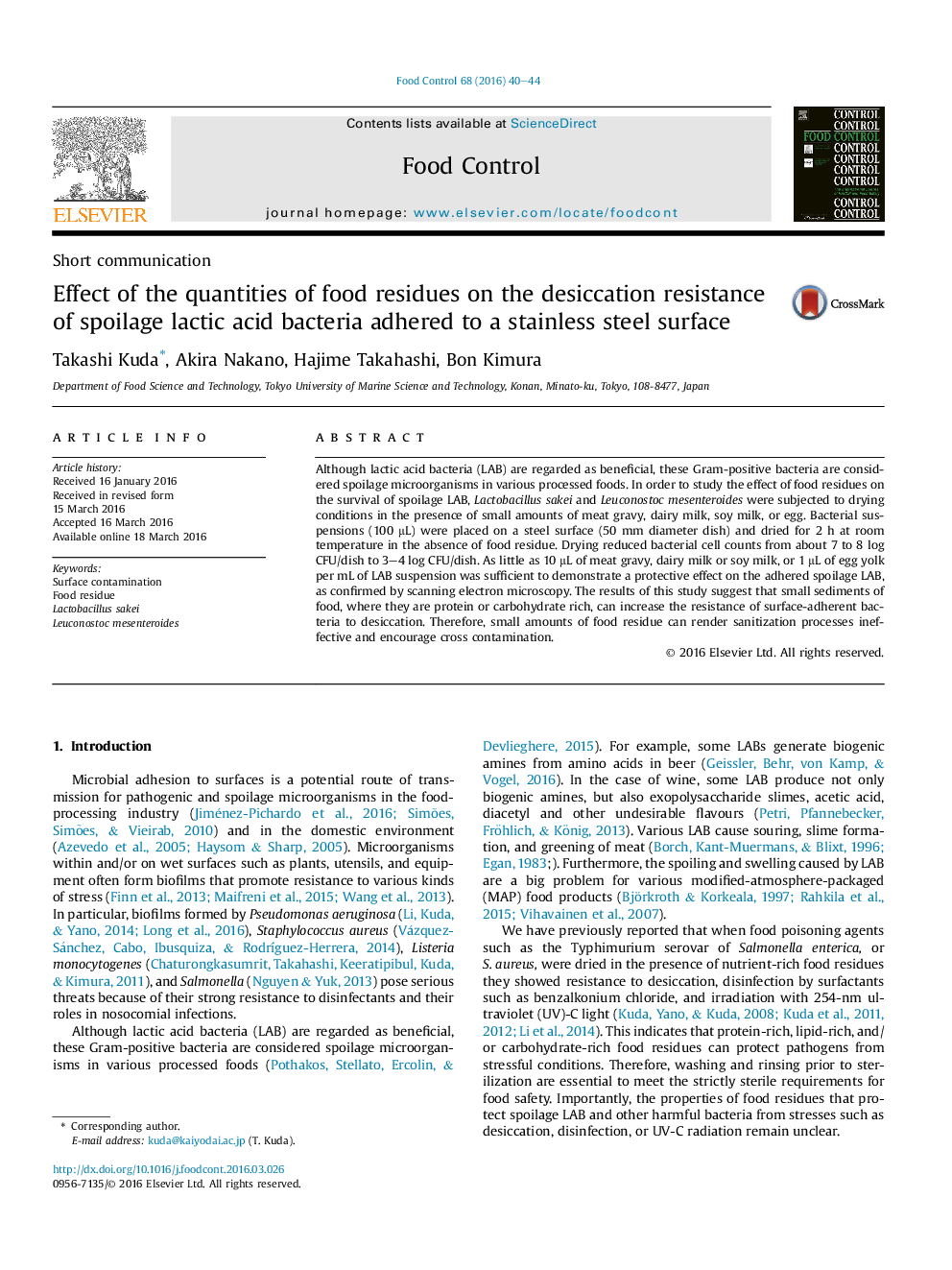| Article ID | Journal | Published Year | Pages | File Type |
|---|---|---|---|---|
| 4559020 | Food Control | 2016 | 5 Pages |
Although lactic acid bacteria (LAB) are regarded as beneficial, these Gram-positive bacteria are considered spoilage microorganisms in various processed foods. In order to study the effect of food residues on the survival of spoilage LAB, Lactobacillus sakei and Leuconostoc mesenteroides were subjected to drying conditions in the presence of small amounts of meat gravy, dairy milk, soy milk, or egg. Bacterial suspensions (100 μL) were placed on a steel surface (50 mm diameter dish) and dried for 2 h at room temperature in the absence of food residue. Drying reduced bacterial cell counts from about 7 to 8 log CFU/dish to 3–4 log CFU/dish. As little as 10 μL of meat gravy, dairy milk or soy milk, or 1 μL of egg yolk per mL of LAB suspension was sufficient to demonstrate a protective effect on the adhered spoilage LAB, as confirmed by scanning electron microscopy. The results of this study suggest that small sediments of food, where they are protein or carbohydrate rich, can increase the resistance of surface-adherent bacteria to desiccation. Therefore, small amounts of food residue can render sanitization processes ineffective and encourage cross contamination.
